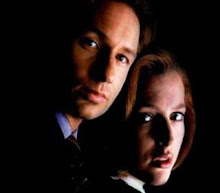Sunday, April 25, 2010
Oh No! The list.
Wednesday, December 23, 2009
'The most important part of a story is the piece you don't know'
Saturday, December 19, 2009
Announcing our new hero, Barbie...
Under the Dome by Stephen King
Stephen King has gone back to a small town in Maine in his latest tome, Under the Dome. The lives of this small country town vastly change when a (glass?) dome shoots up from the ground. The physical technicalities of the dome are intriguing - air can be exchanged, but pretty much nothing else. The town is run by your basic corrupt politician, Big Jim Rennie, that sees it as his duty (we all support the team) to lead the town out of the crisis. Enter our hero, a young ex-military cook (not chef) from out-of-town, Barbie (Dale Barbara). Under the Dome has everything a good King follower will enjoy - a situational thriller, the cunning children, the offbeat hero, the strong leading females, and a slew of bad guys you just want to see crushed if you didn't feel so bad for them (okay, I still wanted to crush them). King's novels often have a literary edge and the message he has about society is clear - we're stuck on this bubble planet earth and maybe we just be a bit nicer to one another if we want to survive. There was even a bit of an environmental kicker involved, but I don't want to spoil the ending. This novel isn't filled with supernatural elements (I know some readers have problems with suspension of disbelief) so even if you're not a die-hard King fan like me, I'd still recommend Under the Dome. It's an exploration of what happens to society under pressure and that should be interesting to all of us in the modern world.
Saturday, November 7, 2009
Keep on truckin'...
Monday, October 12, 2009
Neither rain nor snow...
Chew, chewy, chew
Monday, October 5, 2009
The perfect snore........
Perfecting by Kathryn Kuitenbrouwer
